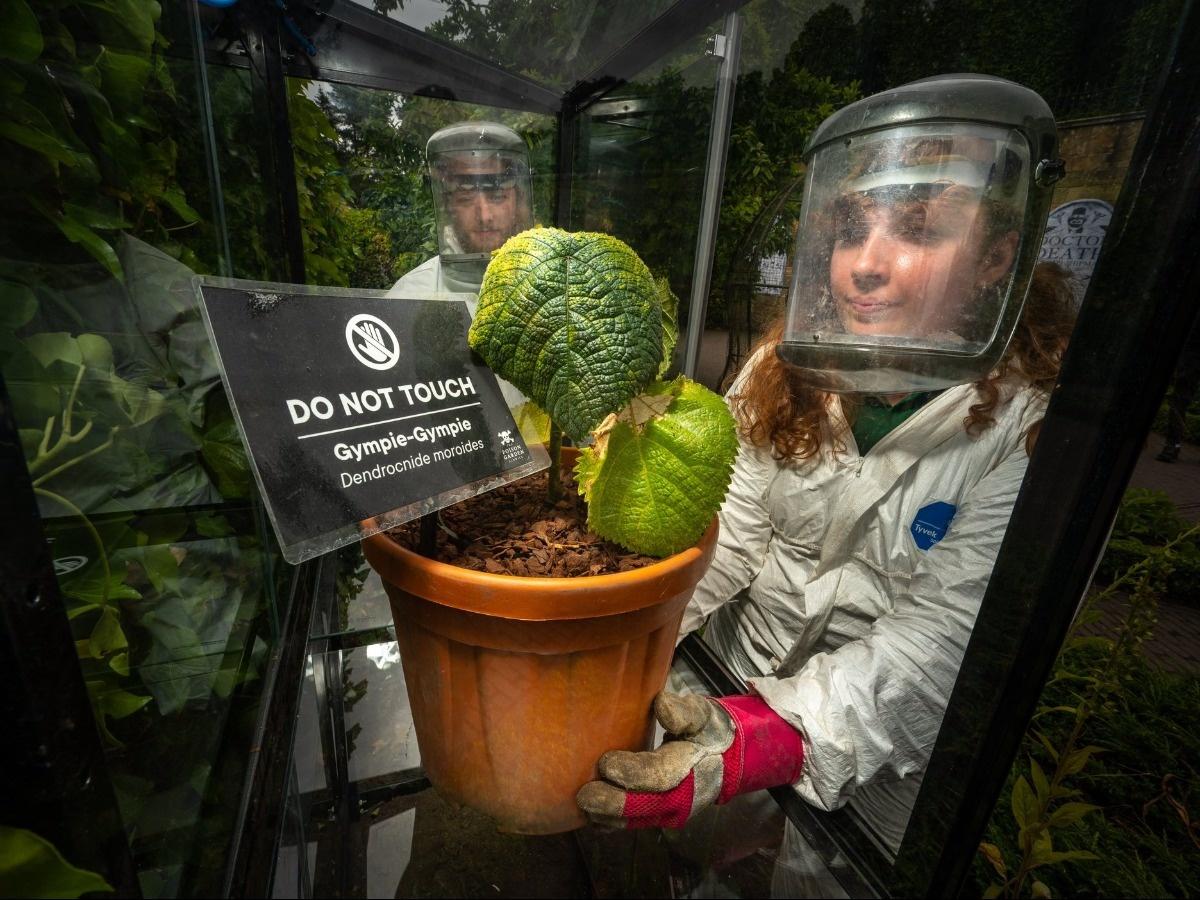World’s Most Venomous Plant That 'Can Cause Suicidal Thoughts' Is In The UK
World’s most venomous plant that 'can cause suicidal thoughts' is in the UK. This notorious plant, known as the gympie-gympie or Dendrocnide moroides, has gained a fearsome reputation due to the excruciating effects it has on anyone who comes into contact with it.
Author:Xander OddityReviewer:Raven NoirJul 10, 202346.7K Shares623.8K Views

World’s most venomous plant that 'can cause suicidal thoughts' is in the UK. This notorious plant, known as the gympie-gympie or Dendrocnide moroides, has gained a fearsome reputation due to the excruciating effects it has on anyone who comes into contact with it.
The Alnwick Garden, located in Northumberland, England, has added this dangerous plant to its collection of poisonous flora. The garden, which already features a Poison Garden containing a variety of toxic plants, has now introduced the gympie-gympie as a new addition, garnering considerable attention and intrigue.
World’s most venomous plant that 'can cause suicidal thoughts' is in the UK. The plant belongs to the nettle family Urticaceaeand is commonly found in the rainforests of Australia and Indonesia.
When it was discovered in 1866, a road surveyor's horse was apparently stung, causing the animal to go insane and die "within two hours."
According to John Knox, the Poison Garden's primary tour guide, the plant's microscopic hair-like needles cause a burning sensation in the sufferer, with the pain escalating over the next 20 to 30 minutes before lasting weeks or months.
This can happen even if you simply brush up against it for a split second, with the expert comparing the sensation to "being electrocuted and set on fire at the same time."
People have also described getting enormous red rashes, having their limbs swell, and being unable to sleep due to the excruciating agony. There has even been one suicide complaint, with a guy allegedly shooting himself after a painful run with the bush.
In Australia, where the gympie-gympie is native, encounters with the plant are rare but highly feared. Even the slightest brush against its leaves or stems can result in agonizing pain. The pain is not limited to humans, as animals, including horses and dogs, have been known to suffer greatly from encounters with this dangerous plant.
The decision to introduce the gympie-gympie to the Alnwick Garden is seen as a bold move, aiming to educate visitors about the potential dangers that exist in the natural world. By showcasing this plant, the garden serves as a reminder that beauty in nature often comes with hidden hazards.
It is important to note that despite its dangers, the gympie-gympie is not known to be lethal. While the pain it causes can be excruciating and long-lasting, there have been no documented cases of fatalities resulting from exposure to the plant. However, the experience of coming into contact with this dangerous plant is undoubtedly one to be avoided.
Visitors to the Alnwick Garden's Poison Garden are carefully guided and advised on the potential hazards of the plants on display. Proper safety measures, including wearing protective clothing, are implemented to prevent accidental contact with any dangerous flora, including the gympie-gympie.
Conclusion
World’s most venomous plant that 'can cause suicidal thoughts' is in the UK. The inclusion of the gympie-gympie in the Alnwick Garden's collection serves as a reminder of the diverse and potentially harmful species that exist in the natural world. It underscores the importance of responsible interaction with plants and the need for education and awareness regarding their potential risks.
Jump to

Xander Oddity
Author
Xander Oddity, an eccentric and intrepid news reporter, is a master of unearthing the strange and bizarre. With an insatiable curiosity for the unconventional, Xander ventures into the depths of the unknown, fearlessly pursuing stories that defy conventional explanation. Armed with a vast reservoir of knowledge and experience in the realm of conspiracies, Xander is a seasoned investigator of the extraordinary.
Throughout his illustrious career, Xander has built a reputation for delving into the shadows of secrecy and unraveling the enigmatic. With an unyielding determination and an unwavering belief in the power of the bizarre, Xander strives to shed light on the unexplained and challenge the boundaries of conventional wisdom. In his pursuit of the truth, Xander continues to inspire others to question the world around them and embrace the unexpected.

Raven Noir
Reviewer
Raven Noir is a captivating and enigmatic news reporter who unravels mysteries with a relentless pursuit of truth. Possessing an insatiable curiosity and an astute mind, Raven delves into the depths of complex stories, unearthing secrets that lie beneath the surface. With a masterful grasp of deduction and observation, Raven stands as a beacon of fearless investigation.
In the realm of journalism, Raven is known for his enigmatic presence, drawing people in with an aura of intrigue. Driven by an unwavering passion for unveiling the truth, Raven Noir continues to shed light on the darkest corners of society. Through captivating storytelling and unwavering determination, he challenges conventions and uncovers enigmatic secrets that lie just beyond the surface.
Latest Articles
Popular Articles